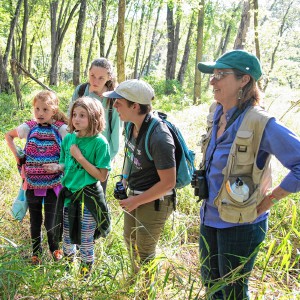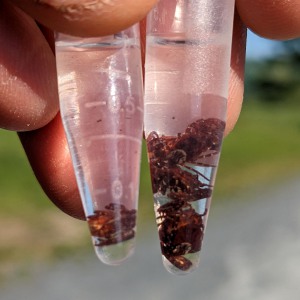Danbury couple brings Merrimack Wonder Pepper back to life
| Published: 04-30-2019 10:16 PM |
Part of the back-to-the-land migration of the late ’60s, Tom Curren took up residence on Potato Road in Canaan, where he tried his hand at farming while working in the nonprofit sector.
It was cold. Not just ordinary New Hampshire cold, but relentlessly cold, with bookends of frost in June and August. Peppers, it seemed, were a fool’s errand in this zone.
Then, at the Lebanon outlet of the Merrimack Farmers’ Exchange, Curren picked up some special seeds. Developed by University of New Hampshire researcher J.R. Hepler during the post-World War I push for self-sufficiency, the Merrimack Wonder Pepper, as it was called, could yield vegetables quicker and withstand the cold better than other peppers. Or so the farmers’ cooperative claimed.
Curren put it to the test, and sure enough, it produced a bounty of gorgeous red peppers that caught the attention of more than a few neighbors.
“That was boot camp,” recalled Curren, sitting at the dining room table in the old farmhouse in Danbury where he now lives with his wife, Kathy Neustadt. “The good old Merrimack Wonder Pepper came through for me.”
Some 50 years later — after decades of obsolescence — the Merrimack Wonder Pepper is coming through for Curren again. After tracking down a stash of seeds and marshaling friends and neighbors to nurture seedlings, he and Neustadt are reintroducing the hardy plant in the region.
“These will mean a lot to people in Northern Maine, Northern New Hampshire, Northern Vermont,” Curren said. “You can grow peppers (in those regions), but you’re playing hide-and-seek with the frost.”
Founded in 1918 in response to escalating grain prices, the Merrimack Farmers’ Exchange thrived for several decades, with retail stores around New Hampshire that sold all manner of farm supplies and served as a distributor for the UNH seed lab. Then, in 1982, beset with mounting financial and managerial problems, the cooperative abruptly sold out to Blue Seal Feeds in Bow, N.H. The farmers in the cooperative got a nice payout, and the employees kept their jobs, but no one had the foresight to save any of the seeds in the cooperative’s stock.
Article continues after...
Yesterday's Most Read Articles
 Upper Valley winter shelters kept dozens warm and dry
Upper Valley winter shelters kept dozens warm and dry
 Former principal of South Royalton School released from prison
Former principal of South Royalton School released from prison
 Owner of Friesian horse facility ordered to pay care costs for seized animals
Owner of Friesian horse facility ordered to pay care costs for seized animals
Just like that, the Merrimack Wonder Pepper disappeared.
“It was really just like an ax fell,” said Neustadt, who met Curren through her work as a folklorist with the Smithsonian in 2000.
After getting married and moving to Danbury, Curren and Neustadt developed a joint interest in tracking down heirloom seeds.
“Creative problem solving is one of our greatest tools as human beings,” said Neustadt, who is especially intrigued by the stories behind the seeds.
After successfully tracking down an heirloom squash called the Boston Marrow Squash in Saskatchewan, Canada, and helping to reintroduce it to the region, Curren and Neustadt set their sights on the Merrimack Wonder Pepper.
At one point, they thought they’d hit pay dirt. A member of Danbury Grows, the local gardening group Neustadt helped organize, found a packet folded up in a jar in her kitchen. But the decades-old seeds failed to germinate.
Finally, about four years ago, Curren, who travels extensively as a land conservationist, met an heirloom seed collector in Pennsylvania. Through her connections, the collector located a packet of the rare seeds and mailed them to Curren.
Since then, Curren and Neustadt have been plotting the pepper’s comeback. Each year, they foster out seeds to various members of Danbury grows, then re-home seedlings with additional members, with strict instructions about nurturing them in isolation so that they don’t crossbreed with other peppers.
“The idea was that it wasn’t going to rest with any one person,” Neustadt said. “It was sort of a nightmare to think that you could go to all this trouble … and then one marauding critter could come and eat them all.”
The plant’s key benefit, a 60-day growing cycle (as opposed to 75-90 days for a typical bell pepper), also was conducive to harvesting seeds. Peppers need to ripen to full redness before their seeds can be dried and harvested, Neustadt said.
Having finally achieved critical mass, Neustadt and Curren have begun been selling seeds for the first time this year, along with a variety of other heirloom seeds, at the Blazing Star Grange in Danbury, as well as through the Weekly Market Bulletin. They package them in handmade packets with the pepper’s story on the back and sell them for $4 apiece. They plan to sell their first seedlings at the annual plant sale at Danbury Elementary School, scheduled for the end of May or early June, as well at the Danbury Country store.
The couple also has been in touch with Fedco Seeds, a Clinton, Maine-based seed cooperative that specializes in cold-hardy varieties, and the company has agreed to trial the seeds with an eye toward selling them in the future. If the plants do what Curren claims, the company will attempt to contract with a grower to produce them for the following season, said Nikos Kavanya, seeds purchaser for Fedco.
“To get a red pepper in 60 days is going to be pretty amazing,” she said. “It’s also a locally developed variety, which is interesting.”
With proceeds from the seed sales, Curren has purchased a grafting tool to aid in the next project he’s undertaking with Danbury Grows: taking inventory of old apple trees around town, with help from a couple of old reference books he used to read on cold winter nights in Canaan, and propagating some of the varieties on his property. “We’ve got people going out into their fields to look at the craggy old apple trees,” Neustadt said.
Saviors of the Merrimack Wonder Pepper also have begun enjoying their harvest. In addition to its hardiness and ability to ripen rapidly, the plant produces large, uniformly shaped peppers that freeze well.
“And the taste is remarkably delicious,” Neustadt said.
Merrimack Wonder Pepper seedlings can be purchased at the Danbury Country Store beginning next month. Call 603-768-3100.
Sarah Earle can be reached at searle@vnews.com or 603-727-3268.

 JAG Productions announces closure, citing ‘crisis facing the arts’
JAG Productions announces closure, citing ‘crisis facing the arts’ How a hurricane and a cardinal launched a UVM professor on a new career path
How a hurricane and a cardinal launched a UVM professor on a new career path Out & About: Vermont Center for Ecostudies continues Backyard Tick Project
Out & About: Vermont Center for Ecostudies continues Backyard Tick Project
